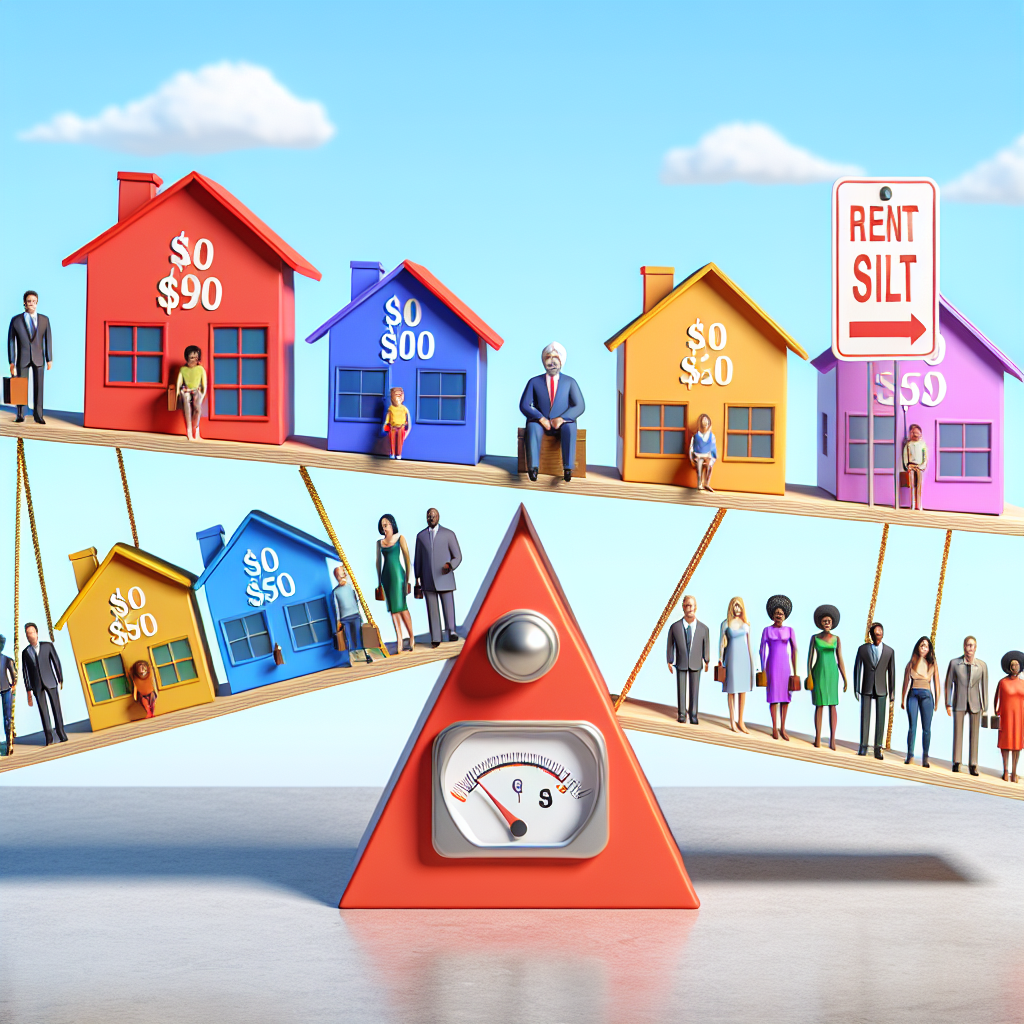Rising Home Prices Push More Americans to Remain Renters
In recent years, the American housing market has experienced a significant surge in home prices, making homeownership increasingly unattainable for many. This trend has led to a growing number of Americans opting to remain renters, a shift that has profound implications for the housing market and the broader economy. This article explores the factors driving rising home prices, the impact on potential homebuyers, and the reasons why more Americans are choosing to rent.
Factors Contributing to Rising Home Prices
Several factors have contributed to the dramatic increase in home prices across the United States. Understanding these elements is crucial to comprehending the current housing market dynamics.
- Supply and Demand Imbalance: A significant factor is the imbalance between housing supply and demand. The demand for homes has outpaced supply, driven by low mortgage rates and a desire for more space during the COVID-19 pandemic.
- Construction Costs: Rising construction costs, fueled by supply chain disruptions and increased prices for materials like lumber, have made building new homes more expensive.
- Investor Activity: Increased activity from real estate investors, who purchase properties to rent or flip, has further driven up prices, making it harder for individual buyers to compete.
The Impact on Potential Homebuyers
The surge in home prices has had a significant impact on potential homebuyers, particularly first-time buyers and those with limited financial resources.
- Affordability Challenges: Many potential buyers find themselves priced out of the market, unable to afford the down payments and monthly mortgage costs associated with current home prices.
- Increased Debt Burden: Those who do manage to purchase homes often take on substantial debt, which can strain their finances and limit their ability to save for other goals.
- Delayed Homeownership: As a result, many Americans are delaying homeownership, choosing to rent instead while they save for a future purchase.
Why More Americans Are Choosing to Rent
With homeownership becoming increasingly difficult, more Americans are opting to remain renters. This decision is influenced by several factors:
- Flexibility: Renting offers greater flexibility, allowing individuals to relocate more easily for job opportunities or personal reasons.
- Lower Upfront Costs: Renting typically requires lower upfront costs compared to buying a home, making it a more accessible option for those with limited savings.
- Maintenance-Free Living: Renters are not responsible for property maintenance and repairs, which can be a significant financial burden for homeowners.
Case Studies and Statistics
Recent data highlights the growing trend of renting over buying. According to a report by the National Association of Realtors, the median home price in the U.S. increased by over 20% from 2020 to 2022. Meanwhile, a study by Pew Research Center found that the percentage of households renting their homes rose from 31% in 2006 to 36% in 2021.
In cities like San Francisco and New York, where home prices are particularly high, the rental market has seen a significant influx of residents who are unable to afford homeownership. These urban areas exemplify the broader national trend of rising rental demand.
Conclusion
The rising home prices in the United States have created a challenging environment for potential homebuyers, leading many to remain renters. Factors such as supply and demand imbalances, increased construction costs, and investor activity have driven up prices, making homeownership less attainable. As a result, more Americans are choosing to rent, attracted by the flexibility, lower upfront costs, and maintenance-free living that renting offers. This shift has significant implications for the housing market and the economy, highlighting the need for policies that address housing affordability and supply issues.



